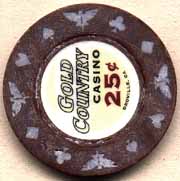There are present only two manufacturers of clay chips IN THE WORLD? That's right, right? GPI and CPC? I guess I've know this for a while, but when you say it out loud, it seems crazy.
And in history, there have been fewer than 10 companies to manufacture compression clay chips? I'm sure I'm missing something, but all I can think of is:
Paulson
CPC
BCC
TRK
ASM
Burt
That company that made THC chips before Paulson
Who am I missing?
Is that really it? Strange industry.
And in history, there have been fewer than 10 companies to manufacture compression clay chips? I'm sure I'm missing something, but all I can think of is:
Paulson
CPC
BCC
TRK
ASM
Burt
That company that made THC chips before Paulson
Who am I missing?
Is that really it? Strange industry.


